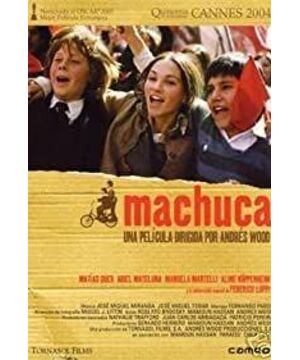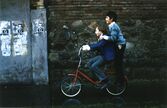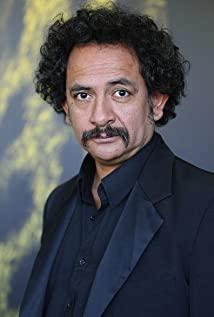This film is about the beginning of the Chilean dictatorship. The original name of the film is Machuga, which is the name of the poor boy in the film. There is a plot in the film where a little girl sits between boys representing two classes, sharing sweet condensed milk with each other with their tongues.
When writing this review, I asked my Chilean friend which brand of condensed milk is the most popular in Chile. They told me it was "Nestlé".
The history of Latin American countries is surprisingly similar. If you look at Venezuela in turmoil today, you may be able to understand more or less what happened in Chile. At the beginning of the film, children from poor families sit in a school that was once accessible only to children from rich families, and people take to the streets to shout for the victory of the left. Chile became the first communist Latin American country to be democratically elected. But it lasted only three years, after which Chile began a dark dictatorship that lasted for 16 years (1973-1989), during which time leftists were brutally killed. At the same time, many other Latin American countries entered Dictadura at almost the same time.
Latin America is a rich land, oil, minerals, fruits and vegetables...The United States and Europe have been exploiting and politically interfering in Latin America for these raw materials. Recommend a book called "Latin America's Open Vessels". And the following is the oral history of two of my Chilean friends. Since the beginning of the Fa-Spanish War, after France's victory, Latin American countries began their independence in order not to turn into French colonies. In order to gain independence, they borrowed from Britain and the United States, but used a large amount of raw materials to repay them at a low price. This is still the case. Europe and the United States have never stopped plundering Latin American raw materials, and then sold the products back to Latin American countries at high prices. This is why if you come to Bolivia, the locals must gnash their teeth towards the United States. Chile's drinking water, roads, and copper mines are almost all controlled by European and American giants. It can be seen that Latin America is too important to the United States. After the outbreak and success of the Cuban Revolution, and the growing strength of leftists in Latin America as a whole, the United States is very worried. In the middle of the film, the streets began to become sluggish, shops closed, and signs that there was no this or that were hung at the door. The consistent way the United States has adopted towards Latin American countries is to cause domestic economic turmoil to shake the foundation of communism or socialism and to insert an authoritarian mind. Thinking about it this way, Cuba has preserved the fruits of the revolution under the economic blockade of the United States for so many years. Even with Venezuela’s help at one time, it is still incredible. At the same time, it is also quite worried about the prospects of Venezuela.
I once watched a video that made a very pungent satire on the five most famous dictators in the world: Hitler, Spain; Francisco Franco, Uganda; Idi Amin, Uganda; SuperMao, Dominican Republic; Rafael Trujillo, Dominican Republic.
In the film, at the beginning, the godfather arranged for the poor students and the rich students to sit together. At the end, when he left, he sadly said something like "religion is dead" and "there is no more holiness". Latin America is mainly Catholic countries, and eventually overthrew the dictatorship. At least, as my friend from Chile told me, the church has helped to some extent. During the dictatorship, the church (but only a few churches) was almost the only connection between the masses and the outside world. One described it as "Levanta Culo", which means "hold up the buttocks" because the church lifted the ass of the Chileans to help them turn. When the wall entered the consulates of other countries, many people embroidered the hardships in Chile on their clothes and then secretly invited church members to send them abroad.
The ending of the film reminded me of another film "Butterfly's Tongue" about the Spanish dictatorship. These two films show the cruelty of dictatorship through the splendor of children. At the end of the former, when Matías, a child of the rich family, ran to the "slum" to find his friend Machuca, he met the military who was beating and shooting the man here, although his eyes were full of tears, when he chose to pretend to be just a mistake I didn’t know anyone here; and at the end of the latter, facing the arrest of his dearest teacher, he chose to be the same as his helpless father who "betrayed the revolution", like all the people around him who cursed fiercely. However, His curse seemed to hurt people's hearts even more. "We stopped being children on the day."
View more about Machuca reviews









